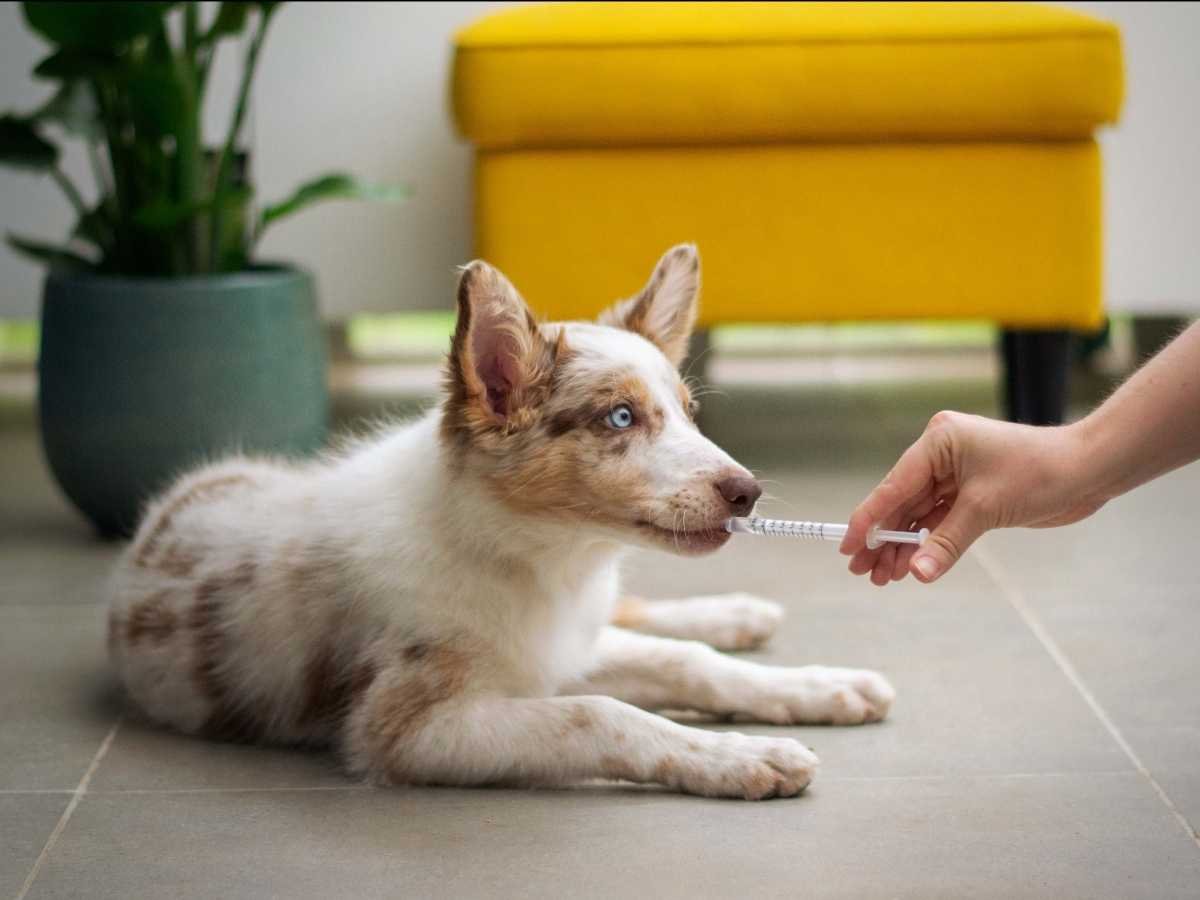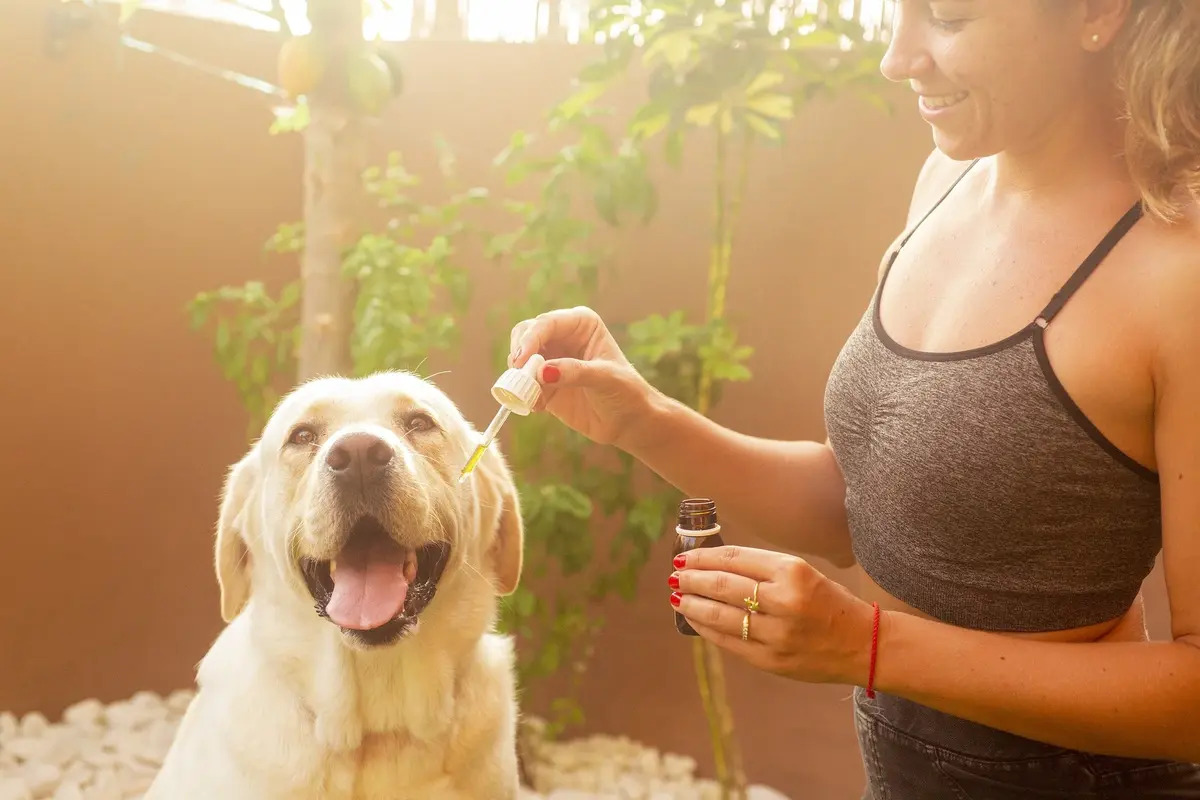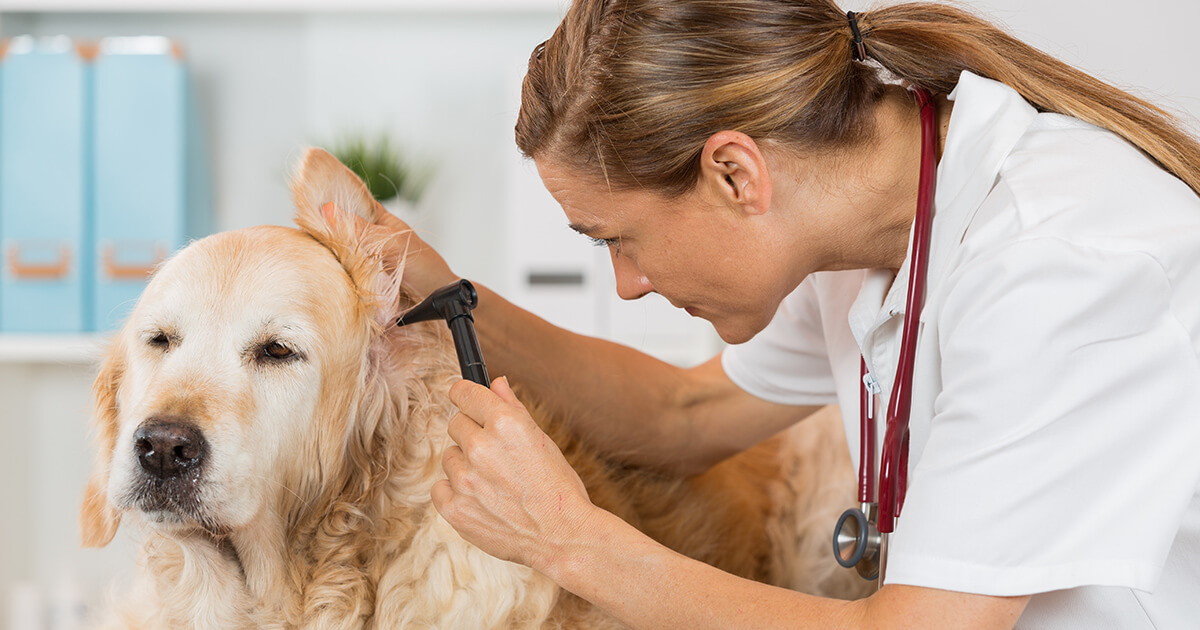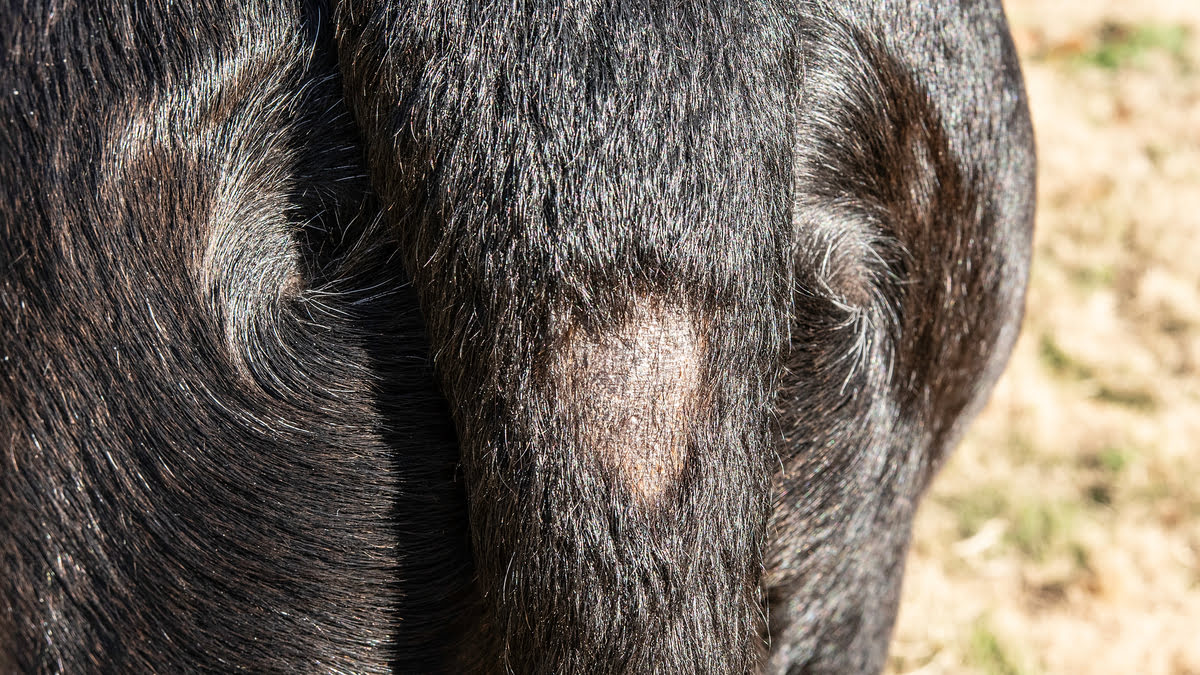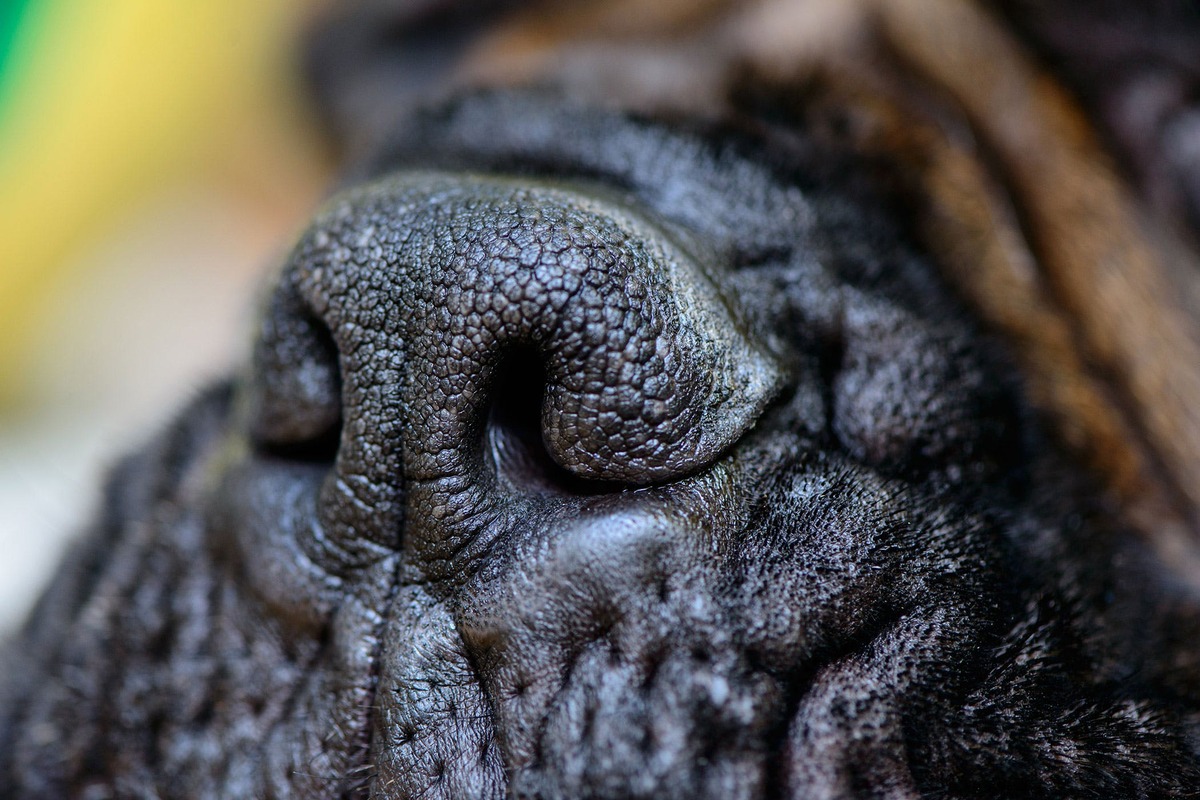Home>Health & Wellness>Common Health Issues>What Can I Do For My Dog’s Dry, Itchy, Scabby Skin Caused By Allergies?
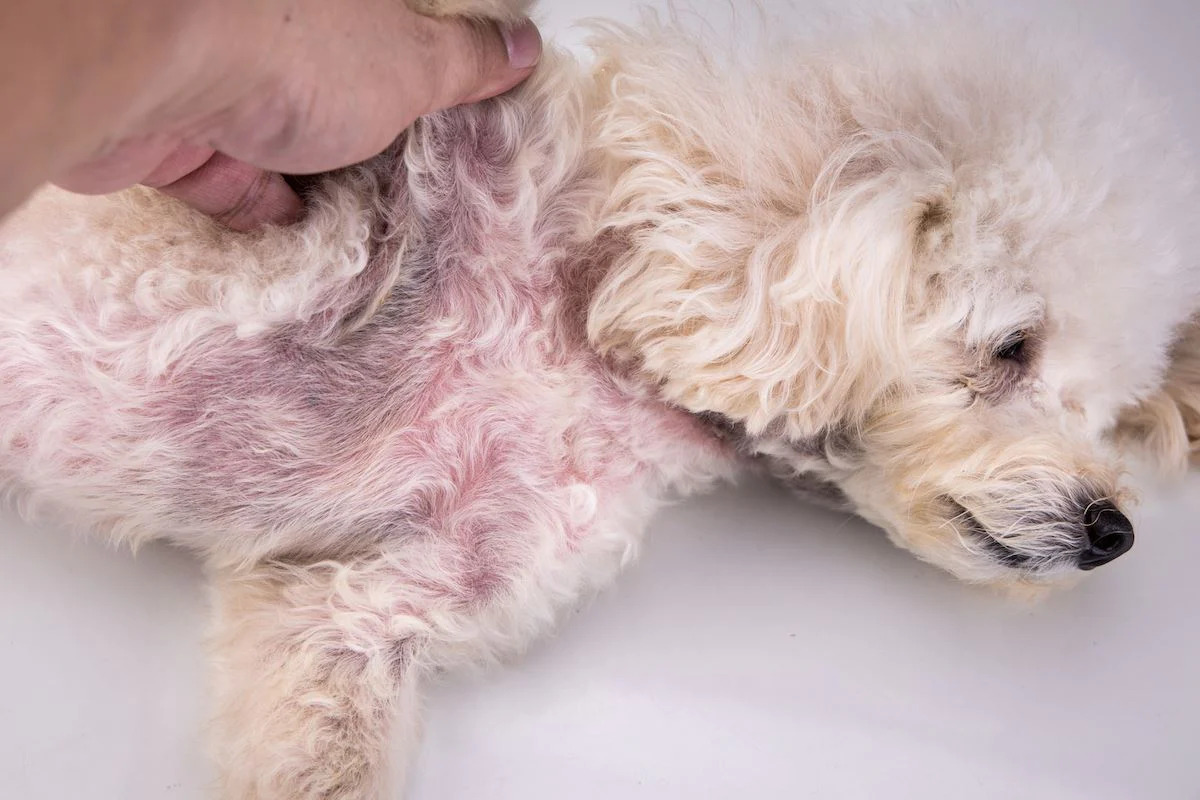

Common Health Issues
What Can I Do For My Dog’s Dry, Itchy, Scabby Skin Caused By Allergies?
Published: January 27, 2024
Discover effective solutions for your dog's dry, itchy, and scabby skin caused by allergies. Learn how to address common health issues and improve your pet's well-being.
(Many of the links in this article redirect to a specific reviewed product. Your purchase of these products through affiliate links helps to generate commission for Pawsomeoldies.com, at no extra cost. Learn more)
Table of Contents
Understanding the Causes of Dry, Itchy, Scabby Skin in Dogs
Dry, itchy, and scabby skin in dogs can be indicative of various underlying health issues, with allergies being one of the most common culprits. Allergies in dogs can manifest in different forms, including environmental allergies, food allergies, and flea allergies. Understanding the causes of these skin conditions is crucial in providing effective relief and preventing future discomfort for your furry companion.
-
Environmental Allergies: Dogs, like humans, can be sensitive to environmental allergens such as pollen, mold, and dust mites. When exposed to these allergens, some dogs may experience allergic reactions that affect their skin, leading to dryness, itchiness, and the formation of scabs. Environmental allergies are often seasonal and can vary based on geographic location and climate.
-
Food Allergies: Certain ingredients in your dog's diet can trigger allergic reactions, resulting in skin issues. Common food allergens for dogs include beef, chicken, dairy, wheat, and soy. When a dog consumes these allergens, it can lead to skin irritation, itching, and the development of scabs. Identifying and eliminating the specific food allergen from your dog's diet is essential in managing and alleviating the skin symptoms.
-
Flea Allergies: Flea saliva contains allergenic proteins that can cause an allergic reaction in some dogs. Even a single flea bite can trigger intense itching and discomfort for dogs with flea allergies. The persistent scratching and biting in response to flea bites can lead to skin abrasions, scabs, and secondary infections. Preventing flea infestations and promptly addressing any signs of fleas on your dog is crucial in managing this type of allergy.
Understanding the underlying causes of dry, itchy, and scabby skin in dogs is the first step in providing targeted care and relief for your pet. By identifying the specific allergens and triggers affecting your dog, you can take proactive measures to address the root cause of the skin issues and improve your dog's overall well-being.
Identifying Allergens and Triggers
Identifying the specific allergens and triggers affecting your dog is crucial in effectively managing and alleviating their dry, itchy, and scabby skin. By pinpointing the underlying causes, you can implement targeted strategies to minimize exposure and provide relief for your furry companion.
Environmental Allergens
Environmental allergens, such as pollen, mold, and dust mites, can vary based on geographic location and seasonal changes. To identify environmental triggers, observe any patterns in your dog's skin reactions. Note if the symptoms worsen during specific times of the year or in certain environments. Consulting with a veterinarian or veterinary dermatologist can also help in conducting allergy testing to pinpoint the specific environmental allergens affecting your dog.
Food Allergens
Identifying food allergens requires a systematic approach. Start by reviewing your dog's diet and identifying potential culprits. Keep a detailed record of the ingredients in your dog's food and monitor any adverse reactions. Introduce an elimination diet under the guidance of a veterinarian to identify specific food allergens. This process involves removing potential allergens from your dog's diet and reintroducing them one at a time while monitoring for allergic reactions. This method can help isolate the specific food triggers causing your dog's skin issues.
Flea Allergens
Flea allergies can be identified through careful observation and preventive measures. Regularly check your dog for signs of fleas, such as excessive scratching, biting, or visible fleas on their fur. Use flea combs to inspect for flea dirt or eggs, particularly in areas where fleas are commonly found, such as the base of the tail and the abdomen. Implementing year-round flea prevention measures, such as topical treatments or oral medications recommended by your veterinarian, can help minimize the risk of flea infestations and allergic reactions in your dog.
Read more: What Kind Of Diet Helps My Dog’s Itchy Skin
Professional Guidance
Seeking professional guidance from a veterinarian is essential in the process of identifying allergens and triggers. Veterinarians can perform allergy testing, including skin tests and blood tests, to identify specific allergens affecting your dog. Additionally, they can provide valuable insights and recommendations for managing your dog's allergies, including dietary adjustments, environmental modifications, and targeted treatment options.
By diligently identifying the allergens and triggers impacting your dog, you can take proactive steps to minimize their exposure and provide a more comfortable and symptom-free life for your beloved pet. Understanding these specific triggers empowers you to make informed decisions regarding your dog's diet, environment, and overall well-being.
Providing Relief for Your Dog's Skin
Relieving your dog's dry, itchy, and scabby skin caused by allergies requires a multifaceted approach aimed at soothing discomfort, promoting skin healing, and addressing the underlying allergic reactions. By implementing targeted relief measures, you can significantly improve your dog's quality of life and alleviate their skin-related distress.
Soothing Baths and Topical Treatments
Regular baths using gentle, hypoallergenic shampoos can help soothe your dog's irritated skin and remove potential allergens. Opt for shampoos specifically formulated for sensitive skin to minimize further irritation. Additionally, consider incorporating oatmeal-based or medicated shampoos to provide relief from itching and promote skin hydration. After bathing, gently pat your dog's skin dry with a soft towel to avoid exacerbating any existing skin abrasions.
Topical treatments, such as soothing sprays or medicated creams recommended by your veterinarian, can be applied to localized areas of irritation. These treatments can help alleviate itching, reduce inflammation, and support the healing process of scabbed skin. Always follow your veterinarian's guidance regarding the appropriate application and frequency of topical treatments to ensure their effectiveness.
Dietary Modifications
Adjusting your dog's diet based on identified food allergens is crucial in managing allergic skin reactions. Transitioning to hypoallergenic or limited ingredient diets can help minimize the risk of triggering allergic responses. Look for high-quality, allergen-free dog food options that cater to your dog's specific dietary needs. Additionally, incorporating skin-supporting supplements, such as omega-3 fatty acids, can promote skin health and reduce inflammation associated with allergies.
Environmental Modifications
Creating an allergen-friendly environment for your dog can contribute to long-term relief from skin issues. Regularly clean and vacuum your home to minimize indoor allergens, such as dust mites and mold. Consider using air purifiers with HEPA filters to reduce airborne allergens. If pollen allergies are a concern, limit outdoor activities during peak pollen seasons and wipe your dog's paws and fur after outdoor excursions to minimize pollen exposure.
Preventative Care for Flea Allergies
For dogs with flea allergies, implementing rigorous flea prevention measures is essential. Consult with your veterinarian to select safe and effective flea control products tailored to your dog's specific needs. Regularly inspect your dog for signs of fleas and promptly address any infestations. By preventing flea bites, you can minimize the risk of allergic reactions and subsequent skin issues.
Veterinary Consultation and Treatment
Seeking professional guidance from a veterinarian is paramount in providing comprehensive relief for your dog's skin. Veterinarians can prescribe allergy medications, such as antihistamines or corticosteroids, to alleviate itching and inflammation. In severe cases, immunotherapy may be recommended to desensitize your dog to specific allergens over time. Additionally, veterinarians can offer advanced treatment options, including allergy shots and specialized skin therapies, to address chronic skin issues caused by allergies.
By implementing these relief measures in conjunction with targeted allergy management strategies, you can effectively alleviate your dog's dry, itchy, and scabby skin while promoting their overall well-being. Consistent and proactive care, coupled with professional guidance, can significantly improve your dog's comfort and happiness in the face of allergic skin conditions.
Preventing Future Allergic Reactions
Preventing future allergic reactions in your dog is a proactive and essential aspect of managing their skin health and overall well-being. By implementing preventive measures and lifestyle adjustments, you can minimize the risk of allergic flare-ups and provide a more comfortable and symptom-free life for your beloved pet.
Allergen Avoidance
Identifying and avoiding specific allergens that trigger allergic reactions in your dog is fundamental to preventing future skin issues. Once you have pinpointed the environmental, food, or flea allergens affecting your dog, take deliberate steps to minimize their exposure. This may involve modifying your dog's living environment, dietary choices, and outdoor activities to create an allergen-friendly setting.
Dietary Management
Maintaining a well-balanced and hypoallergenic diet is crucial in preventing food-related allergic reactions. Transitioning your dog to a carefully selected hypoallergenic or limited ingredient diet can significantly reduce the risk of triggering allergic responses. Additionally, avoiding common food allergens, such as beef, chicken, dairy, wheat, and soy, can help mitigate the likelihood of allergic skin issues.
Regular Grooming and Hygiene Practices
Incorporating regular grooming and hygiene practices can contribute to preventing allergic skin reactions in your dog. Brushing your dog's coat regularly helps remove potential allergens and reduces the risk of skin irritation. Additionally, maintaining proper hygiene, including ear cleaning and dental care, can support your dog's overall health and minimize the impact of environmental allergens on their skin.
Environmental Modifications
Creating an allergen-minimized living environment for your dog can play a significant role in preventing future allergic reactions. Implementing measures such as frequent home cleaning, the use of air purifiers with HEPA filters, and minimizing exposure to outdoor allergens during peak seasons can help reduce the likelihood of allergic flare-ups. Creating a clean and allergen-controlled space for your dog can contribute to long-term skin health.
Consistent Preventative Care
Consistency in preventative care, including flea control and regular veterinary check-ups, is essential in preventing allergic reactions. By adhering to a year-round flea prevention regimen and promptly addressing any signs of fleas, you can minimize the risk of flea-related allergic skin issues. Additionally, scheduling routine veterinary visits allows for proactive monitoring of your dog's skin health and the implementation of preventive measures tailored to their specific needs.
Holistic Wellness Approach
Taking a holistic approach to your dog's wellness, including stress management, regular exercise, and mental stimulation, can contribute to overall immune system support. A strong and balanced immune system can help mitigate the impact of allergens on your dog's skin, reducing the likelihood of allergic reactions. Engaging in activities that promote physical and mental well-being can bolster your dog's resilience against environmental and food allergens.
By integrating these preventive measures into your dog's daily care routine and lifestyle, you can significantly reduce the risk of future allergic reactions and promote long-term skin health. Consistent vigilance, environmental modifications, and a holistic approach to wellness are key components in safeguarding your dog against allergic skin issues.
